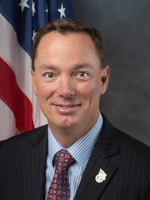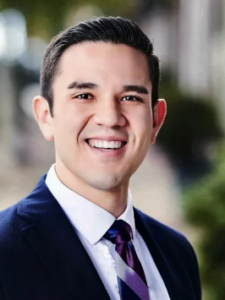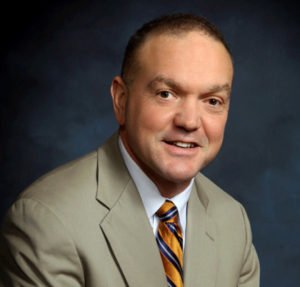Outside of insurance attorneys, plaintiffs’ lawyers and some doctors, few people in Florida may be familiar with what are known as letters of protection.
But critics say the instruments, in which doctors agree to take a share of the judgment in an injury lawsuit, are responsible for greatly inflating some medical costs, which are often paid by liability and auto insurers
And now, thanks to a tort-reform bill filed Wednesday, those letters would have to be disclosed by plaintiffs.
It’s just one of a multitude of what some are calling “monumental” legal changes proposed by House Bill 837, which was submitted by Florida Rep. Tommy Gregory, R-Lakewood Ranch.

Few people this year were talking publicly about another round of reforms designed to limit litigation costs for insurers, after Florida lawmakers approved sweeping legislation in December. But after huddling quietly over the last few weeks with the Florida governor and the newly sworn Republican leaders of the House and Senate, along with some of the biggest business and legal reform groups in Florida, Gregory has drafted a bill that checks the remaining boxes that property-casualty insurers and other corporations have been asking for.
“This has been a key priority for the business community,” said George Feijoo, a former Florida insurance regulator and now a government affairs consultant at Floridian Partners. “It’s a perfect alignment of the governor and the Senate and the speaker on these issues.”
Some plaintiffs’ attorneys were caught off guard by the bill.
“This came out of nowhere,” said West Palm Beach attorney Gina Clausen Lozier, who represents policyholders in claims litigation. “They’re really trying to tie up all the loose ends.”
No more attorney-client privilege on treating physicians for plaintiffs. In Worley vs. Central Florida YMCA, the Florida Supreme Court in 2017 decided that when claimants’ attorneys refer their injured clients to doctors for treatment, the financial relationship between the lawyer and the doctor does not have to be revealed in discovery. Without that, the jury can’t fairly decide if the physician has an incentive to inflate medical treatments and costs, said William Large, president of the Florida Justice Reform Institute, which has lobbied for tort reforms.
The Worley decision has stuck in the craw of the insurance industry for years, because insurers’ payments to their own medical expert witnesses are considered discoverable in litigation. HB 837 ends the perceived double standard. “There is no lawyer-client privilege under this section when: A communication is relevant to the lawyer’s act of referring the client for treatment by a health care provider,” the bill reads.
50% at fault means no recovery. Florida statutes have allowed juries to allocate responsibility for an accident or negligent act that caused harm. HB 837 states flatly that if a plaintiff is found to be more than 50% at fault, he or she cannot recover damages in a lawsuit.
Policy limits equal damage limits. If two or more third-party claimants make competing claims on a single incident, which, taken together, would exceed the policy limits, an insurer cannot be liable beyond the policy limits, the bill reads. The claimants will be entitled to a prorated share, as determined by the court or arbitrator in the case.
Medical costs must be real. The bill would require that evidence provided by plaintiffs in injury claims must be limited to the “amount actually paid, regardless of the source of payment.” That means that if the injured party has health care insurance, the amount paid by insurance should be explained and damages should not be based on unsupported medical estimates.

If the claimant has signed a letter of protection with a medical provider, circumventing health insurance, the plaintiff’s demand must still be guided by what health coverage would have paid. If the injured party has no medical insurance, the Medicare reimbursement rate should be considered.
Letters of protection. The letters are big reasons why medical costs and damages in an injury verdict have often seemed higher than what a health insurer would normally pay for treatment, critics have said. A Justice Reform Institute white paper in 2019 argued that even if an injured person has health coverage, the plaintiff’s lawyer might recommend an LOP in order to avoid damage awards based on the lower, negotiated rates generally paid by health insurers to medical providers.
In addition, some providers sell their LOPs to medical lien-purchasing companies, or factoring companies, which can pay less than the doctor’s claimed amount, but still more than a health insurer would pay.
Under HB 837, all letters of protection, along with the amount the third-party factoring company agreed to pay the doctor, would be divulged in the personal injury or wrongful death lawsuit proceedings. Doctors’ bills would have to be itemized and must include procedure codes where possible.
No more multipliers. What Senate Bill 2D did for property insurance litigation, HB 837 would do for auto and liability insurance claims litigation. Thanks in part to another 2017 opinion by the Florida Supreme Court, courts have allowed plaintiffs’ attorneys to use a multiplier, on top of a “Lodestar” factor, to calculate higher fees when they prevail in litigation, in many cases. The idea is that fee multipliers help ensure that qualified law firms will accept difficult cases, or will travel distances when other lawyers can’t be found.
Gregory’s bill would allow only the Lodestar fee, except in rare circumstances when evidence shows that competent counsel could not otherwise be retained. Lodestarwas the name of a federal court decision that set out a formula for determining reasonable attorney fees and is widely followed in federal litigation.
Bad-faith claims. While SB 2A in December raised the threshold for making bad-faith claims against property insurers, HB 837 extends that to auto and liability insurance claims. Mere negligence by an insurer would not be sufficient to sustain a bad-faith action, the bill notes. And the judge or jury would have to consider whether the insured and the insured’s attorney acted in good faith and may reduce damages accordingly.
Insurers have for years complained that Florida law encourages unwarranted third-party, bad-faith claims by law firms looking to recover damages in excess of policy limits. The reform bill would give a “safe harbor,” barring a suit if the insurer pays damages or rectifies violations within 60 days of being notified.
One-way attorney fees. At the heart of Florida’s property insurance crisis, many insurers have said, were Florida statutes and court rulings that granted hefty attorney fees, even if the insured prevailed by only a marginal amount in court. Gregory’s bill simply repeals Florida Statutes 627.428 and 626.9373, which authorized the fee structure. While SB 2A ended one-way fees for property insurers, HB 873 would effectively end them for claims litigation against other types of insurers, including surplus lines.
The bill also would strike another section of state law, which now reads: “The provisions of s. 627.428 do not apply to any action brought pursuant to this section against the uninsured motorist insurer unless there is a dispute over whether the policy provides coverage for an uninsured motorist proven to be liable for the accident.”

At the two special sessions of the Florida Legislature in 2022, insurance bills crafted by the governor and legislative leaders sailed through both chambers virtually unchanged. But at the regular session, which begins March 7 and lasts for 60 days, things may be a little different, Tallahassee insiders and lobbyists suggested. With more time for lawmakers to review and more corporate interests involved, it’s possible that some provisions in HB 837 could be revised before the bill is finalized.
But probably not by much.
After hearing the business community’s cries, DeSantis “is taking on the trial bar in dramatic fashion and is leading Florida towards a more predictable legal environment,” said Large, of the Justice Reform Institute. “And he’s poised to deliver.”
Was this article valuable?
Here are more articles you may enjoy.


 Walmart to Pay $100 Million to Settle FTC Case on Driver Wages
Walmart to Pay $100 Million to Settle FTC Case on Driver Wages  ‘Structural Shift’ Occurring in California Surplus Lines
‘Structural Shift’ Occurring in California Surplus Lines  Claims Handling Breakdowns From LA Wildfires One Year on
Claims Handling Breakdowns From LA Wildfires One Year on 